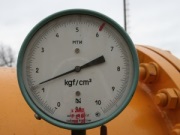The equivalent figures for 2014 were 35.5 bcm (65 per cent of the annual capacity) and 23.8 bcm (43 per cent) in 2013.
Nord Stream continues to meet its objectives of improving Europe’s energy security by serving as reliable and efficient infrastructure able to increase gas flows to meet changing market demand and capacity constraints in other supply routes. For example, Nord Stream operated at an average load of 77.9 per cent in December.
Gas started flowing through the first of Nord Stream’s twin pipelines in November 2011, and by October 2015 a total of 100 bcm had flowed through the pipeline system. As of January 20, 2016 a total of 112.7 bcm of natural gas has been transported.
Nord Stream transports Russian gas through pipelines on the bed of the Baltic Sea and delivers it to a receiving terminal on Germany’s Baltic coast, from where the gas enters the gas transportation systems of other European countries via two linking pipelines in Germany, OPAL and NEL. The European Commission currently imposes restrictions on the volumes transported via OPAL to other EU Member States.


